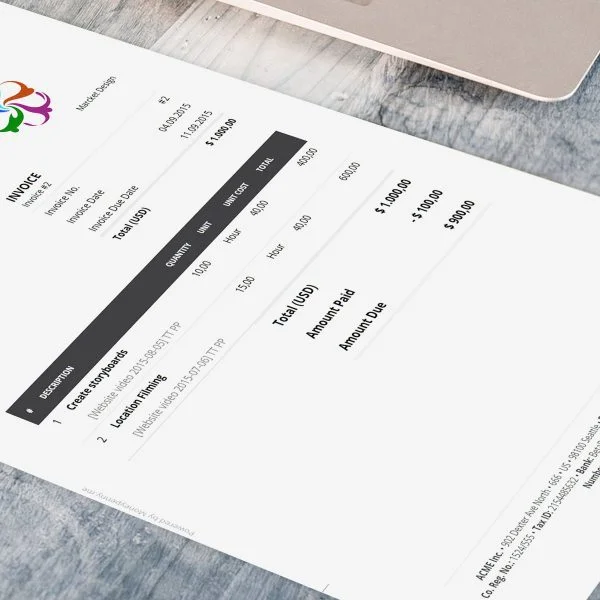A bad time management system will always bring out the worst results for any team. Apart from not meeting your deadlines, you will also miss out on the whole world that exists out of your cubicle. Thankfully, it doesn’t take much to learn about time management. In this article, we have shared some tips that can help improve time management for your team. With them, you and your team can leave on time and play some great slots online or just spend time with their families.
8 Tips For Improving Time Management For Your Team
Here are some valuable time management techniques that you can use to improve time efficiency. Before we move on, remember that time management is just one piece of the puzzle. You still need to do effective resource planning to maximize efficiency and productivity. Only then you will be able to leverage your time and resources correctly.
1. Understand How You Are Currently Spending Your Time
If you want to optimize time management, you need to figure out and understand where the time is being spent. You need to log your team’s time for the week so that you can track their daily activities. With the help of this audit, you will be able to:
- Determine how much can be accomplished in a day
- Identify where time is being wasted
- Focus attention on activities that offer the best returns
As you keep auditing your team’s time, you will understand how much of their time they are spending on unproductive activities. This exercise will also help determine what time of the day your team members are most productive. This way, they will understand when to work on projects that require the most creativity and focus.
2. Create and Stick With A Daily Schedule
This is one of the most crucial time management tips if you want to learn how to manage time at work for your team. The first thing you need to focus on is to start your day with an organized to-do list. Before your team leaves, they need to list down the most important and pressing tasks for the next day. This step will allow them to get started with these tasks as soon as they can.
Even if your team members cannot write down the tasks for the next day, ensure that they do it the next day after arriving to work. By creating a clear plan of the day, you and your team won’t lose track of time jumping between different tasks.
3. Prioritize The Work
Once your team starts creating their to-do list, they need to prioritize the work for successful time management. For this, they need to eliminate tasks they shouldn’t do for the day. Next, they need to identify the most important tasks and get them done first. This way, you will ensure that the essential tasks are done first.
Always evaluate their to-do list and ensure that the work for the day is based on the importance, not its urgency. By completing the important responsibilities, you will be able to support the company’s achievements. On the other hand, urgent responsibilities are often associated with the achievement of the individual’s goals. In most cases, we tend to focus more on the urgent tasks when we should be really focusing on the important ones.
According to time management experts, you can divide your work into the Eisenhower matrix, prioritizing the tasks based on the importance and urgency. These quadrants include:
- Important And Urgent: These are the tasks that your team needs to complete right away. They have critical deadlines with high urgency. Some examples would be filing taxes or coming up with immediate goals.
- Important But Not Urgent: These tasks are important but not urgent. Often, these tasks do not require immediate action and are mostly based on long-term strategizing and development. Most of the time needs to be spent on this quadrant. Signing up for an event as a volunteer, or holding weekly team meetings are some great examples.
- Urgent But Not Important: While these tasks may be urgent, they are not important. Get your team to minimize them because they don’t contribute to the output required by your company. In most cases, they can be considered general distractions and can result in poor planning. For example, meeting with the product manager, or scheduling and organizing a team activity, etc.
- Not Urgent And Unimportant: These are activities that have the minimum value and should be removed or get done with as soon as possible. Some examples include checking personal Instagram, holding daily team meetings, etc.
4. Group Similar Tasks Together
One of the best ways to mastering time management techniques is to group similar tasks. This way, you and your team will be able to save time together. For instance, delegate a few members of the team to make phone calls and answering emails as they come in. Get other members of your team to some other tasks. Group all the similar tasks so that the work gets done faster. Additionally, avoid looking at your phone or personal emails as it can be quite tempting.
5. Don’t Multitask
This is a great time management technique for work but also can be the hardest to follow. Your team needs to focus on the task at hand and also avoid all distractions. Of course, they may feel the temptation of multitasking to get the work done faster. However, they will just shoot themselves on their foot in an attempt to do so. This will lead to a decrease in productivity, and you will lose time when switching from one task to another.

Similarly, you should never get overwhelmed when you see a long to-do list. Overthinking and stressing about it will not make the list any shorter.
6. Add Buffers
One of the most wonderful ways to use time management for your team is to make breaks a part of your work schedule. After your team member completes a certain work, give them time to breathe. Get your team together and get involved in some recharging activities like some meditation, a game of ping pong, a short walk, etc.
7. Say No
You will never be able to learn time management tips if you cannot say no. Only you know what you and your team have time for. Hence, if you want to get the tasks done for the day, you and your team need to learn how to say no. Additionally, if you know that a project isn’t going the way it should, don’t be afraid to let it go.
In case you and/or your team members cannot say no, try to delegate the task. Delegation is not an easy task to learn. However, it can do wonders for time management. If your team is talented, you can determine which tasks can be delegated.
8. Eliminate Distractions
This is one of the most used and best time management techniques that should be used by your team. There are many distractions at work – instant messaging, text messages, co-workers, web browsing, etc. Time management is about getting rid of distractions. Ask your team to limit interactions unless it is about work. Identify the top two distractions and focus on eliminating them slowly.
Final Thoughts
These are just some of the many time management strategies that you can use to motivate your team to make the best of the available time. Perhaps the best strategy is when your team members come back home and engage with their personal lives instead of sitting late at night to get the tasks done.
What do you think of all this? Let us know in the comments!
BIO
Thomas Glare demonstrates his expertise through various time management pieces. Through various blogs, he has helped a significant number of social media managers succeed. He also consults for various websites and online businesses.






